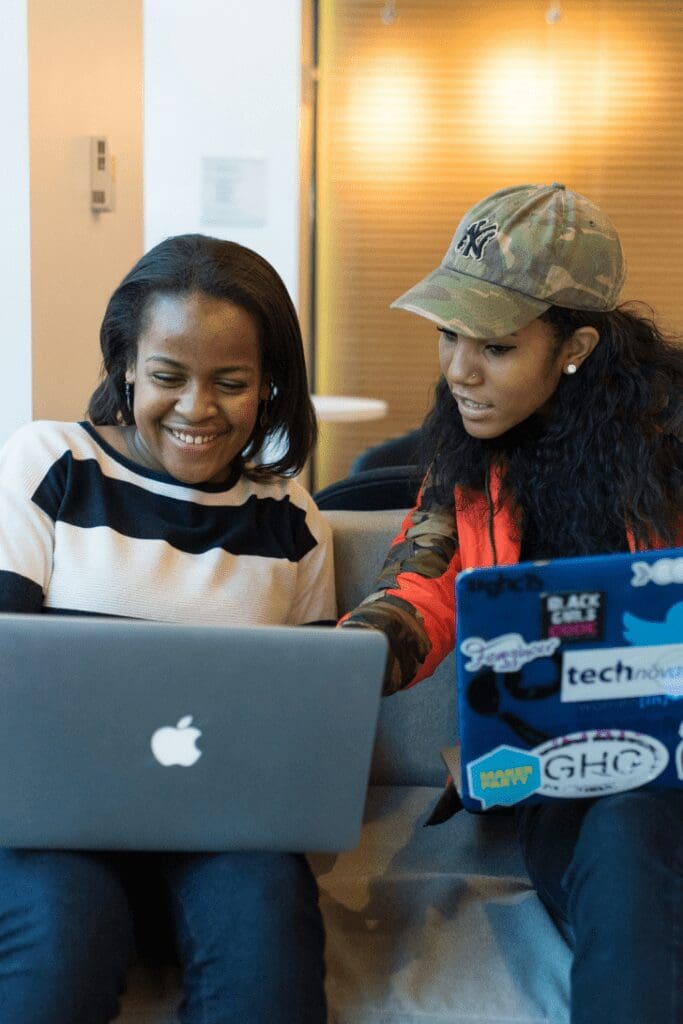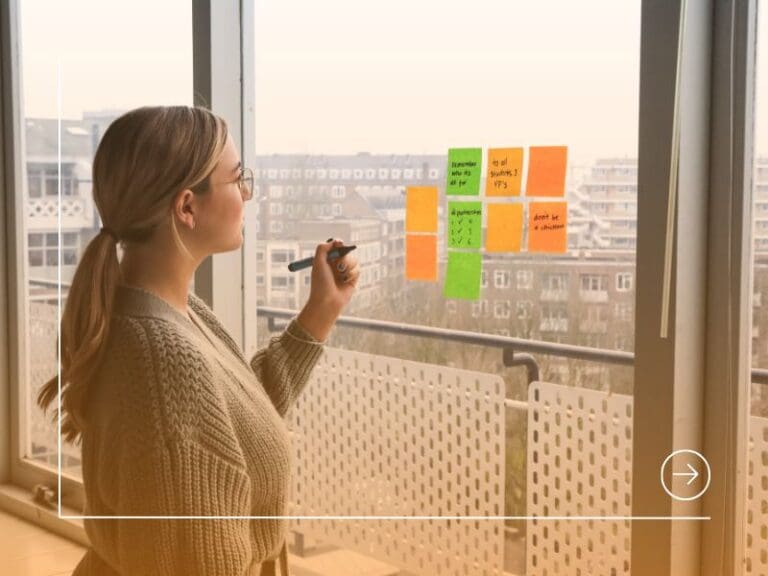Paige Coulthurst is the Operations Director at full-service digital marketing agency Soap Media.

She stepped into the role after originally joining the company as a Web Project Manager in August 2022. Since then, she has revolutionized operations, spearheaded employee growth initiatives, and introduced new service offerings. Her achievements highlight the importance of Impressing Employers Without Coding Experience and Creating a Stand-Out CV to demonstrate how impactful non-coding roles can be.
While acting as Web PM, she obtained her Prince2 Certification and utilized her UX background to implement impactful UX workshops for clients. Creating a Stand-Out CV involves managing clients of all sizes across numerous industries, with projects ranging from £10,000 to £250,000.
At the age of just 26, and as a current shortlisted candidate in the Technology category of the 2024 Campaign Inspiring Women Awards, Paige is aiming to help other women excel in their own technology careers.
Below, she’s shared her tips for acing your next Project Manager interview.
You're invited! Join SheCanCode's Women in Tech Community
Find a supportive network, opportunities, jobs & much more, so you can excel in your tech career.
Be Technical in a Non-Technical way
When discussing technical aspects of a project, it’s crucial to translate your technical knowledge into practical terms. At the end of the day, your role as a PM is to bridge the gap between technical jargon and client expectations.
For example, if you’re asked what you know about APIs, the interviewer isn’t looking for you to explain the different API protocols or your experience in connecting them with complex systems. Instead, they’re looking for you to demonstrate your knowledge in working with clients with APIs as part of their projects.
Explaining things like what questions you ask when an API gets brought up in project scopes, whether you’ve estimated API integrations before, and what access you know to request to integrate APIs. The interviewer needs to understand your thought process and recognise how you apply your knowledge to projects.
Documents, Documents, Documents
Documentation is the backbone of any successful project. Project plans, scope breakdowns, briefing documents, budget trackers, and WIPs all provide clarity and accountability throughout a project lifecycle.
Chances are your interviewer will also be a PM, so, during the interview, delve into specific examples of how your meticulous documentation practices have contributed to project success. Whether it’s outlining proofing checklists or sharing project plans and scopes via screen share, providing tangible evidence of your documentation skills is a must. Plus, you know a PM’s eyes will light up at the sight of a spreadsheet…
On Time, On Budget
As a Project Manager, your two main goals are to deliver the project on time, and within budget. This can be tough to achieve given you’re not the one delivering the work. Therefore, you should be prepared to answer important questions on this.
Beyond simply stating your adherence to these objectives, delve into your strategies for achieving them. Share anecdotes of how you’ve collaborated with team members to align design complexity with development budgets, highlight your role in facilitating transparent communication on project milestones and budget constraints to the team below you to instill responsibility and ownership on the team. And it may be worth mentioning that good old ‘documentation’ again here.
Embrace Breadth of Knowledge over Depth of Knowledge
You don’t need to know the ins and outs of design or development to be the best project manager. Although deep expertise is always valuable, a broad understanding of the project lifecycle is often more beneficial.
During the interview, demonstrate your breadth of knowledge by touching on various aspects of a project and how you can contribute. From scoping and estimating to UX design or accessibility knowledge and content migration processes, showcase your ability to navigate broad briefs and contribute meaningfully to project success.
By highlighting your multifaceted skill set, you automatically position yourself as a versatile and adaptable project manager.
TIP: For any hiring manager reading this who might be thinking about a great assessment to give a tech PM candidate, two great tasks are:
- Giving the candidate a website and asking them to pretend it’s a staging site for a new client. Tell them to talk you through or write down the checks they’d carry out. For example, are they proofing designs and looking at site security and SEO, or are they simply looking at just the UX or responsiveness?
- Giving them a website and asking them to quote (in hours) for a full rebuild from enquiry to launch. This gives you an idea of their knowledge of how long things take and how they have worked process-wise in the past.
Stay Ahead of Emerging Trends
The tech landscape evolves rapidly, and staying abreast of emerging trends is paramount. Take this opportunity to showcase your proactive approach to continuous learning and innovation. Discuss your efforts to stay informed about industry developments, whether it’s attending workshops, subscribing to newsletters, or participating in online forums. By demonstrating your awareness of trends such as accessibility guidelines, GDPR compliance, and advancements in AI, you underscore your commitment to delivering cutting-edge solutions that meet evolving client needs.
For bonus points, explain how you spotted an emerging trend and then implemented your findings into ongoing projects. As an example, with the rise of AI, how have you adopted AI tools into your work? After all, it’s great knowing about trends, but adhering to them is key.
Real-World Experience Trumps Buzzwords
While familiarity with project management methodologies is important, practical experience holds more weight.
During the interview, hone in on real-world applications rather than throwing around buzzwords. Avoid focusing on Agile (a buzzword) methodologies, how you run sprints (…another buzzword) and how much you ‘love’ daily stand-ups (yet another buzzword!). Instead, emphasise your ability to lead meetings, inspire confidence among team members, and approach a project plan in whatever way the budget deems appropriate. By showcasing your hands-on experience and problem-solving skills, you position yourself as a pragmatic and results-oriented project manager.
Contracts and Quoting: The Foundation of Success
Although last on the list, this is arguably the most important tip. Depending on the seniority of the role, it’s likely you’ll be expected to contribute to the scoping and quoting of projects. Utilizing tools like quotation software can streamline this process, ensuring accuracy and efficiency in your proposals.
The contracting phase lays the groundwork for project success, making it essential to demonstrate proficiency in scoping projects and crafting comprehensive statements of work.
During the interview, provide detailed examples of how you’ve translated client requirements into actionable project plans and estimates. Discuss your approach to mitigating risks and delve into how you ensure clarity in contractual agreements, highlighting the importance of thoroughness and attention to detail.
Final Thoughts
In your pursuit of a technical PM role, remember that interviews are opportunities to showcase not only your technical expertise, but also your interpersonal skills and strategic thinking. By effectively communicating your experiences, knowledge, and vision for project management, you’ll position yourself as a valuable asset to any tech team.
Paige says:
“Don’t ever forget that you are interviewing the company just as much as they are interviewing you.”
“This always helps me to approach an interview with confidence, and come armed with all the questions I want answers to.”
Step into that interview room with confidence, armed with a comprehensive understanding of what it takes to excel in the world of tech project management, and go get that dream job!









